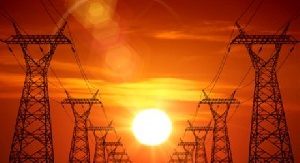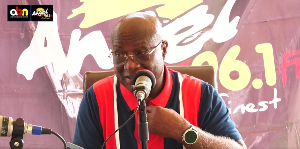Businesses in the country are now on the edge of survival as the prevailing electricity tariff regime has weighed on their profitability and competitiveness; forcing shares to tumble.
Currently, the value of stocks of many businesses on the stock market has taken a southerly turn- with manufacturing firms being the hardest hit.Most firms are spending a lot of their capital and existing resources on buying power following the recent changes in the country’s electricity tariff structure, which has moved Ghana from once among less expensive countries to very expensive grid tariff regimes in Africa.
The Energy Commission, which advises government on energy issues, has established that the current cost of buying power has made businesses uncompetitive whiles many others will struggle to survive since most industries now have to pay about three times what they are required to stay in business.
According to the Commission, heavy industries like mines would require on the average tariff less than 6 US cents per kWh to stay competitive with similar products imported while light industries could go as high as 10 US cents per kWh to survive and that businesses will be better off running own diesel powered generator sets since the current electricity tariff is largely anti-competitive.
“Thus for current energy tariffs for industries ranging from 18 – 26 US cents per kWh, excluding service charges means they are on the very high-side.
“For non-residential or Commerce/service customers, for a tariff range of 26-43 US cents per kWh for initial consumption of 300 kWh in a month, it would be cheaper running own diesel alternative if available, except for convenience.
“Running a back-up generator at the current retail diesel price in the country would produce electricity at an average cost of 27 US cents per kWh. As if some service sector consumers have already realised it, they are switching to their backup gensets during the last two weeks of the month,” the Commission noted.
Over the past decade, the retail price of electricity in Ghana has seen nearly 600 percent increase with the average end user tariff for electricity consumed per every kilowatt hour going up consistently from 7.8 pesewas in 2006 to 54 pesewas as at the end of 2015.
In December last year, the Public Utilities and Regulatory Commission approved a 59.2 percent increase in electricity tariffs for the fourth quarter of the year alone which was met with huge public outcry. Yet, the government at the beginning of January this year introduced an Energy Sector Levy, bringing the cumulative increase in electricity tariffs since December last year to about 73 percent.
Although the government has been severely criticized for introducing such a heavy levy, it keeps defending its stance that such was needed to protect the collapse of the power industry, by clearing the legacy debts
The market has, however, reacted unkindly to the high electricity tariff with the Ghana Stock Exchange Composite Index (GSE-CI) - which tracks the performance of the market- posting a 10 percent decline from a level of 1,994 points at the end of December last year to 1,786 as at last Tuesday.
The stock market capitalisation has also gone down from GH¢57.12 billion at the end December last year to GH¢54.7 billion on Tuesday, which points to the fact both business and consumer confidence are currently are at a low ebb.
The umbrella organization of businesses in the country, the Association of Ghana Industries (AGI), in its latest quarterly business barometer survey noted that the cost of power has cut deep into the profitability of firms with many businesses citing the cost of power as their number one challenge in doing business in the country.
Business News of Friday, 8 July 2016
Source: B&FT

















